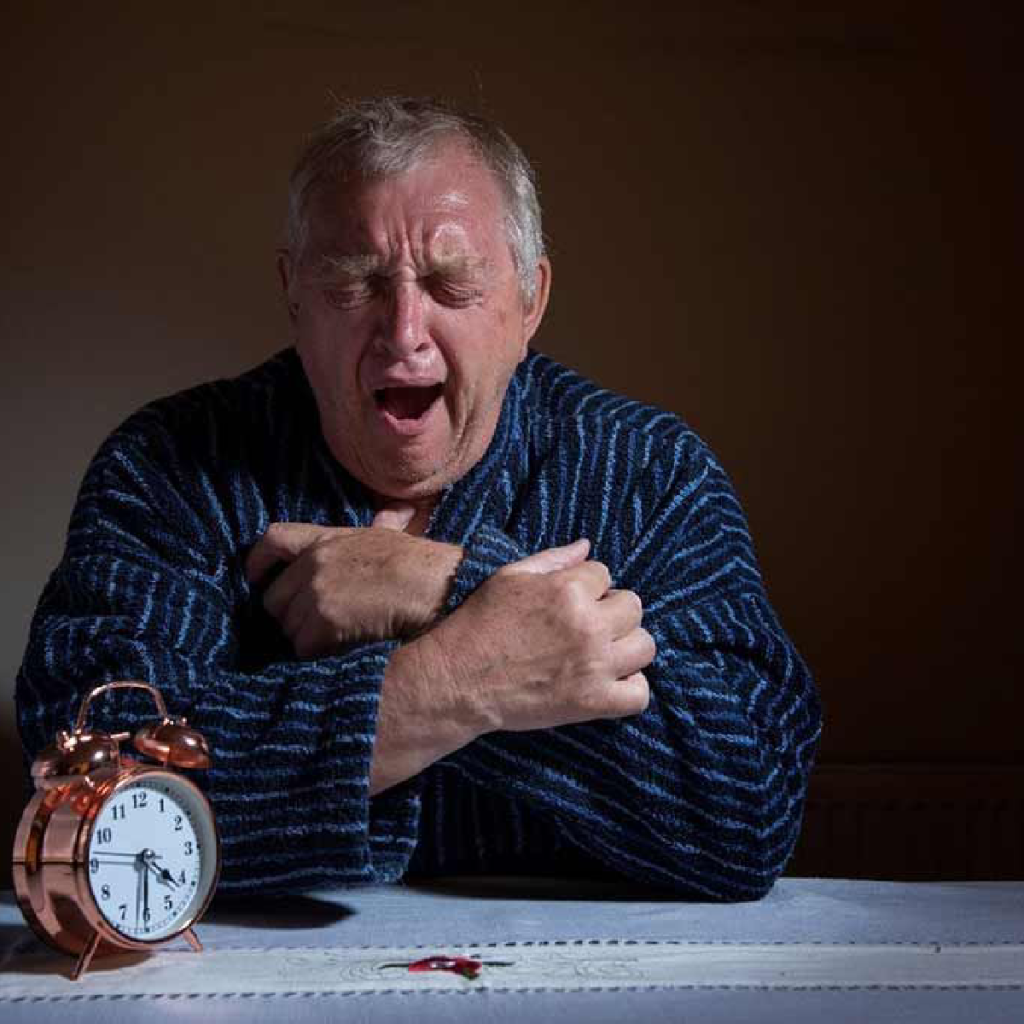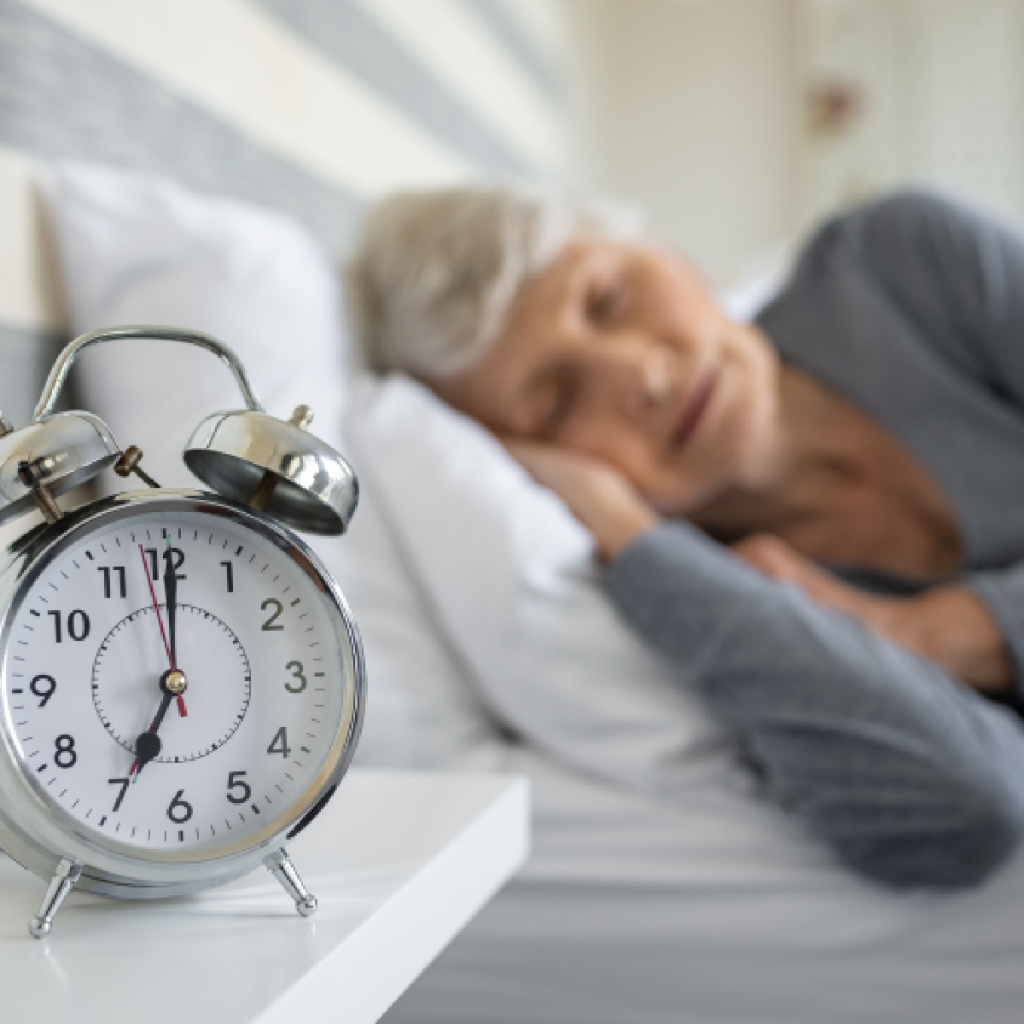Discover the reasons behind why older adults tend to wake up earlier than their younger counterparts.
Why Do Older Adults Wake Up Earlier?
Have you ever noticed that your parents or grandparents always seem to be up before the crack of dawn? While it may be tempting to dismiss it as a quirk of getting older, there is actually a scientific explanation behind this phenomenon. In this article, we will explore the reasons why older adults tend to wake up earlier and discuss the factors that contribute to this shift in sleep patterns.

Understanding the Aging Body’s Internal Clock
As we age, our bodies undergo various changes, including alterations to our circadian rhythm—the internal clock that regulates our sleep-wake cycle. One key player in this intricate system is a hormone called melatonin.
Melatonin, also known as the “sleep hormone,” is responsible for regulating our sleep-wake cycles. It is produced by the pineal gland in response to darkness and helps us feel sleepy at night. However, as we get older, our melatonin production decreases, which can lead to changes in our sleep patterns.
But what exactly happens to our circadian rhythm as we age? Let’s delve deeper into the effects of aging on this crucial internal clock.
The Role of Melatonin in Sleep-Wake Cycles
Melatonin plays a vital role in synchronizing our sleep-wake cycles with the natural day-night cycle. When the sun sets and darkness falls, the pineal gland releases melatonin into the bloodstream, signaling to our body that it’s time to wind down and prepare for sleep. This hormone helps us feel drowsy and promotes a restful night’s sleep.
However, as we age, the production of melatonin gradually declines. This decline in melatonin levels can disrupt our sleep patterns, making it harder to fall asleep and stay asleep throughout the night. It’s not uncommon for older adults to experience fragmented sleep or early morning awakenings due to the reduced levels of melatonin in their bodies.
How Aging Affects the Circadian Rhythm
In addition to changes in melatonin production, aging can also affect the timing of our circadian rhythm. This internal clock controls not only when we feel tired and awake but also influences other bodily functions, such as body temperature and hormone production.
As we age, our circadian rhythm may shift, causing us to feel sleepier earlier in the evening and wake up earlier in the morning. This shift, commonly referred to as “advanced sleep phase syndrome,” can disrupt our daily routines and make it challenging to stay awake during the evening hours.
Furthermore, the aging process can lead to a decrease in the amplitude of our circadian rhythm. This means that the difference between our highest and lowest energy levels throughout the day becomes less pronounced. As a result, older adults may experience fluctuations in their energy levels, feeling more fatigued during certain times of the day.
Understanding the changes that occur in our circadian rhythm and melatonin production as we age is crucial for maintaining healthy sleep patterns and overall well-being. By recognizing these age-related shifts, we can make adjustments to our daily routines and create an environment conducive to quality sleep.
The Psychological Factors Behind Early Rising
While biological changes play a significant role, various psychological factors can contribute to older adults waking up earlier as well.
One of the key psychological factors that can influence early rising in older adults is the impact of retirement on sleep patterns. Retirement is a major life transition that can disrupt our daily routines, including our sleep patterns. Without the demands of a traditional work schedule, many retirees find themselves waking up earlier and experiencing a shift in their sleep-wake cycles. This change can be attributed to a sense of freedom and a lack of external obligations that were previously associated with their work life.
Another psychological factor that can contribute to early rising in older adults is anxiety and depression. Anxiety and depression are prevalent among older adults and can significantly impact their sleep quality. These mental health conditions often manifest as early morning awakenings and make it challenging to fall back asleep. The racing thoughts, worry, and sadness associated with anxiety and depression can disrupt the sleep-wake cycle, leading to an earlier wake-up time.
In addition to retirement and mental health conditions, other psychological factors can also play a role in early rising. For some older adults, a sense of purpose and fulfillment in their daily activities can lead to a natural inclination to wake up earlier. Engaging in meaningful hobbies, volunteering, or pursuing personal interests can create a sense of anticipation and excitement, prompting individuals to rise early to make the most of their day.
Furthermore, the concept of “social jet lag” can also contribute to early rising in older adults. Social jet lag refers to the misalignment between an individual’s internal body clock and the social demands of their environment. As people age, their internal body clock may naturally shift, causing them to feel more alert and awake in the early morning hours. However, societal expectations and obligations often revolve around a standard 9-to-5 schedule, which may not align with an older adult’s natural sleep-wake rhythm. This misalignment can result in early rising as older adults try to conform to societal norms.
In conclusion, while biological changes are a significant factor in early rising among older adults, various psychological factors can also contribute to this phenomenon. The impact of retirement, anxiety, depression, a sense of purpose, and social jet lag are just a few examples of how psychological factors can influence sleep patterns in older adults. Understanding these factors can help individuals and healthcare professionals develop strategies to optimize sleep quality and overall well-being in the aging population.
Health Conditions That Influence Sleep in Older Adults
As individuals age, they may experience various health conditions that can significantly impact their sleep patterns. These conditions not only affect the duration of sleep but also the timing, leading to early wake-up times and disrupted sleep cycles.
Sleep Apnea and Its Effects on Sleep Timing
One prevalent health condition among older adults is obstructive sleep apnea. This condition is characterized by repeated interruptions in breathing during sleep, resulting in fragmented and poor-quality sleep. Sleep apnea becomes more prevalent as individuals age, and its effects on sleep timing can be quite profound.
When someone suffers from sleep apnea, their breathing repeatedly stops and starts throughout the night. These interruptions can lead to sudden awakenings, often accompanied by gasping or choking sensations. Consequently, individuals with sleep apnea often find themselves waking up earlier than desired, feeling restless and fatigued.
Furthermore, the disrupted sleep caused by sleep apnea can have a cascading effect on an individual’s overall health and well-being. Chronic sleep deprivation can lead to daytime sleepiness, difficulty concentrating, and an increased risk of accidents or falls. It can also contribute to the development of other health conditions, such as hypertension, cardiovascular disease, and diabetes.
The Connection Between Insomnia and Early Rising
Another common sleep disorder that affects older adults is insomnia. Insomnia is characterized by difficulty falling asleep, staying asleep, or both. As individuals age, the prevalence of insomnia tends to increase, making it a significant contributor to early rising among older adults.
Individuals with insomnia often find themselves lying awake in bed, unable to fall asleep or stay asleep for an adequate duration. They may experience racing thoughts, anxiety, or discomfort, preventing them from achieving restful sleep. Consequently, they may wake up earlier than desired, feeling frustrated and fatigued.
Insomnia can have a profound impact on an individual’s overall quality of life. The lack of restorative sleep can lead to daytime fatigue, irritability, difficulty concentrating, and impaired cognitive function. It can also contribute to the development of mood disorders, such as depression and anxiety.
Addressing insomnia and sleep apnea in older adults requires a comprehensive approach. Treatment options may include lifestyle modifications, such as maintaining a regular sleep schedule, creating a conducive sleep environment, and practicing relaxation techniques. Additionally, medical interventions, such as continuous positive airway pressure (CPAP) therapy for sleep apnea or cognitive-behavioral therapy for insomnia (CBT-I), can be effective in managing these conditions and improving sleep quality.
In conclusion, the health conditions that commonly affect older adults, such as sleep apnea and insomnia, can significantly influence sleep timing and contribute to early wake-up times. Understanding these conditions and seeking appropriate treatment can help older adults achieve restful and rejuvenating sleep, ultimately enhancing their overall health and well-being.
Lifestyle Factors Contributing to Early Wake-Up Times
Our habits and lifestyle choices can also influence our sleep patterns as we age. It is important to consider various factors that may contribute to early wake-up times, including diet, exercise, and the consumption of alcohol and caffeine.
The Influence of Diet and Exercise on Sleep
Eating a healthy diet and engaging in regular exercise can positively impact sleep quality. A well-balanced diet that includes fruits, vegetables, whole grains, and lean proteins provides essential nutrients that support healthy sleep patterns. Regular exercise, such as aerobic activities or strength training, can help regulate the body’s internal clock and promote better sleep.
On the other hand, poor dietary choices and a sedentary lifestyle can contribute to sleep disturbances and early awakenings. Consuming high amounts of processed foods, sugary snacks, and caffeine can disrupt the body’s natural sleep-wake cycle. Additionally, a lack of physical activity can lead to increased restlessness and difficulty falling asleep at night.
The Effect of Alcohol and Caffeine on Sleep Patterns
Consuming alcohol and caffeine, particularly close to bedtime, can disrupt sleep and lead to early morning wake-ups. Alcohol may initially make you feel drowsy, but it can interfere with the quality of your sleep. It can cause fragmented sleep, frequent awakenings, and even early morning awakenings.
Caffeine, a stimulant found in coffee, tea, chocolate, and some medications, can also have a significant impact on sleep patterns. Its stimulating effects can make it difficult to fall asleep and stay asleep. Even consuming caffeine earlier in the day can disrupt sleep quality, leading to early morning wake-ups.
Limiting the consumption of alcohol and caffeine can help promote better sleep in older adults. It is advisable to avoid consuming these substances at least four to six hours before bedtime to minimize their disruptive effects on sleep.
In conclusion, lifestyle factors such as diet, exercise, and the consumption of alcohol and caffeine can significantly influence sleep patterns and contribute to early wake-up times. By making conscious choices to prioritize healthy eating, regular physical activity, and limiting the intake of alcohol and caffeine, individuals can improve their sleep quality and overall well-being.
Strategies to Improve Sleep in Older Adults
While early rising may be a natural part of aging, there are strategies that older adults can employ to improve their sleep quality and maintain a more consistent sleep schedule.

The Benefits of Sleep Hygiene Practices
Practicing good sleep hygiene involves adopting habits that promote healthy sleep. This includes creating a relaxing sleep environment, establishing a regular sleep schedule, and avoiding stimulating activities before bedtime.
Medical Treatments and Therapies for Better Sleep
In some cases, medical treatments or therapies may be necessary to address underlying sleep disorders or other health conditions contributing to early morning wake-ups. Consulting with a healthcare professional can help determine the most suitable options for improving sleep.
So, the next time you find yourself grumbling about your early-rising grandparent, remember that there are scientific reasons behind their shift in sleep patterns. Aging, changes in our internal clock, and various psychological and lifestyle factors all contribute to older adults waking up earlier. By understanding these factors and implementing strategies to improve sleep quality, older adults can maintain healthier sleep patterns and enjoy more restful nights.







Your point of view caught my eye and was very interesting. Thanks. I have a question for you.